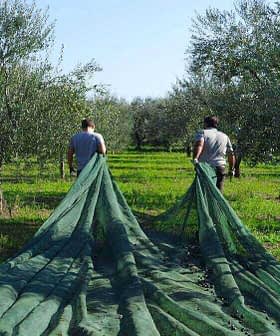The ongoing struggle against the Xylella fastidiosa infection in the Puglia region of Italy may have reached a turning point.
On January 29, the Conferenza Stato-Regioni approved a plan to deploy €300 million ($332 million) over the next two years both as compensation for farmers and as projects to restore the olive oil production capacity of the region while also containing the spreading of the disease.
We need a swift and efficient bureaucracy to let farmers reconstruct their future.
Those funds were strongly asked for by local authorities and farmers and they are part of what is regarded as an “extraordinary intervention plan” designed by the Ministry of Agriculture in the last few months.
“To restore olive farming and agriculture, we need farmers who can invest, sustain replanting, diversify their groves and closely work with the transformation industry and the marketing firms,” Teresa Bellanova, the minister of agriculture, said.
See Also:Xylella fastidiosa NewsMost of those funds will be assigned to the olive farmers who suffered the infection and lost many of their trees across an area of 750,000 hectares (1.85 million acres).
The regional government had asked all of the funds to be directed to the farmers, but the central government decided to also take into account both scientific research and the expenses needed for the projects aimed at the restoration of the olive oil production.
The affected trees removed during these last few years and all the nearby olive groves that had to be destroyed to slow down the spreading of the infection will be replaced by different olive trees varieties, those that are considered immune to the Xylella bacteria.
A substantial lack of coordination and agreement among several different institutions in Italy, both at central and local levels, is widely believed to constitute the main cause for the delay in the intervention against Xylella.
Coldiretti, the farmers association, has recently stressed that “since 2013, when Xylella fastidiosa was found in an olive tree in Gallipoli, the disease has spread while no efficient strategy was applied to contain the bacteria. Now Xylella has gone north, from Lecce to Brindisi and Taranto.”
“Now, the Puglia region has to take action and make up for those delays,” Coldiretti president for Puglia, Savino Muraglia, said. “We need a swift and efficient bureaucracy to let farmers reconstruct their future.”
Both central and local government officials, as well as farmers, now stress the importance of moving quickly and executing the plan.
In the last few months, new worrying evidence of the spread of the disease has been found in France, Spain, Portugal and Germany.
The EFSA (European Food Safety Authority) admits there is not a single bullet policy that can contain Xylella, but there are a number of measures that local and central governments can adopt to contain the spreading.


 Jan. 31, 2020 10:19 UTC
Jan. 31, 2020 10:19 UTC Paolo DeAndreis
Paolo DeAndreis






